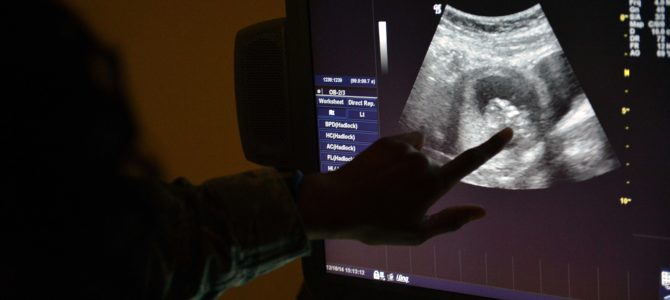
The Pennsylvania House Health Committee held a hearing Tuesday on the University of Pittsburgh’s experimentation with aborted fetuses, including experiments grafting aborted baby scalps onto mice. Pitt denies that the aborted fetuses are supplied by a local Planned Parenthood, and that their research is funded by taxpayer dollars, but Tuesday’s hearing featured witnesses testifying otherwise.
In the fall of 2020, researchers at the University of Pittsburgh published a study titled, “Development of humanized mouse and rat models with full-thickness human skin and autologous immune cells.” In studying how organs reacted to pathogens or infections on human skin, researchers grafted “full-thickness human skin” as well as thymuses, livers, and spleens from fetuses onto rodent bodies, creating what they call “humanized rat models.”
The study says researchers obtained fetuses “at the gestational age of 18 to 20 weeks” from elective “termination of pregnancy through Magee-Womens Hospital of the University of Pittsburgh Medical Center (UPMC), with the University of Pittsburgh, Health Sciences Tissue Bank.”
Researchers used skin from both the scalps and backs of fetuses so that they could compare grafts with and without hair. Graphic images from the experiment show that by 12 weeks, fine human hair, or baby hair, can be seen growing darker and longer than the surrounding short white hairs of the mice.
This study was funded by the taxpayer-funded National Institute of Health (NIH), and in part by Dr. Anthony Fauci’s office, the National Institute of Allergy and Infectious Diseases (NIAID). In a statement to The Federalist, Pitt spokesman Kevin Zwick said the university “does not use any of its state appropriation to fund fetal tissue research.” Pitt does not deny that they receive NIH funding or that they are performing their experiments in state-funded facilities.
State Rep. Kathy Rapp, the overseeing committee’s chairwoman, noted during the hearing that “even funding from the NIH is supported by Pennslyvania taxpayer dollars, so whether it’s federal or whether it’s state dollars … it is taxpayer-funded research.”
The University of Pittsburgh was represented by Dr. Jeremy Rich, a neurologist and deputy director of research at UPMC Hillman Cancer Center. In answering questions from committee members, Rich said he was “relatively new to Pennslyvania” and repeatedly declined to answer questions on fetal tissue trafficking, admitting that as a brain cancer researcher, “speaking from my own experience, I don’t use fetal tissues, I use fetal cells.”
Rich reiterated Pitt’s position that “all laws and guidelines are being followed.” When questioned specifically on the humanized rats study, Rich interrupted a member to correct them, noting “they’re mice actually, they’re not rats,” even though the study in question has “humanized mouse and rat models” in its title.
David Daleiden, a pro-life activist, undercover journalist, and founder of the Center for Medical Progress (CMP), also testified Tuesday, alleging that Pitt and the local Planned Parenthood of Western Pennsylvania are engaged in an illegal quid pro quo for fetal body parts.
In CMP’s undercover video footage, Dr. Audrey Lance, an abortionist at Planned Parenthood of Western Pennsylvania and Abortion Training Director at the University of Pittsburgh, tells Daleiden, “Well, there’s a tissue bank at Pitt that we offer patients to donate to,” referring to the University of Pittsburgh Health Sciences Tissue Bank explicitly mentioned in the above study.
“The University does not obtain fetal tissue from Planned Parenthood,” Zwick told The Federalist in a statement. Daleiden alleged that the University of Pittsburg is lying about its relationship with Planned Parenthood to protect its status as a major site for Planned Parenthood’s abortion training programs.
“Some of the worst violators in Planned Parenthood’s abortion and fetal research practices were trained at Pitt,” Daleiden said, pointing to PPFA Medical Director Dr. Jennefer Russo, who trained as an abortionist at Pitt and was later caught supplying dead fetuses to a for-profit California tissue procurement company.
The hearing also focused on fetal experimentation by Pitt’s Dr. Jörg Gerlach, a stem cell scientist in Pitt’s McGowan Regenerative Medicine Institute. His research involved the abortion of five-month-old fetuses born alive via induced labor in order to deliver the babies whole for better use of their organs, specifically livers.
“Dr. Gerlach’s protocol describes this liver harvesting as an ‘in vivo’ procedure–Latin for, quote, ‘in the living body,’ and requires the harvesting to take place immediately after the umbilical cord has been cut,” Daleiden testified.
Rich said Daleiden incorrectly attributed the experiments involving liver cultures from fetal tissues to Pitt researchers.
“The research on human fetal cell isolation was conducted only in Italy. No work was done in the United States and no federal U.S. research dollars were used for the work,” Rich told the committee in his opening statement. “Rather the research on culturing of liver cells was supported by a grant from UPMC. This was a process of development of good manufacturing practices.”
A study on the “Expression of Human Fetal Liver Hepatoblasts” by Gerlach published in 2019 describes using “in vivo” sections of fetus livers the “Methods” section.
To confirm Dlk1 expression in hepatoblasts in vivo, we costained human fetal liver sections for a hepatoblast-specific marker alpha-fetoprotein (AFP) with Dlk1. Unfixed liver tissue was embedded in an OCT compound (Sakura Finetek, Torrance, CA) and flash frozen in liquid nitrogen-cooled isopentane followed by freezing in liquid nitrogen.
Rich is correct that Gerlach’s study was funded by UPMC. The study’s “Acknowledgments” sections reads, “This study was financially supported by the UPMC (University of Pittsburgh Medical Center).”
However, another fetal liver study affiliated with a lab in Palermo, Italy, titled “Report on Liver Cell Transplantation Using Human Fetal Liver Cells,” was funded by the NIH, contrary to Rich’s testimony that no federal U.S. research dollars were used for that type of study.
When Rep. Timothy Bonner asked Rich what fetal research was done in Italy that could not be done in Pennslyvania, Rich said, “UPMC was not doing research in Italy. They had collaborators.”
“Science is global,” he said. “Very often we can collaborate with people around the world … so it was not UPMC individuals doing research overseas, it was collaborative.”









